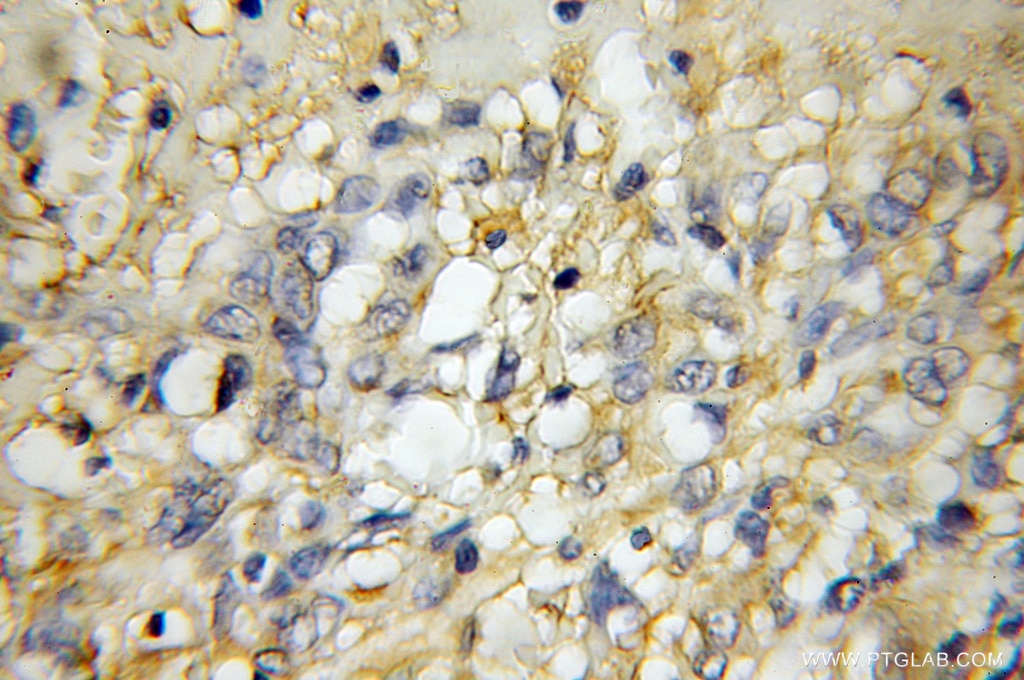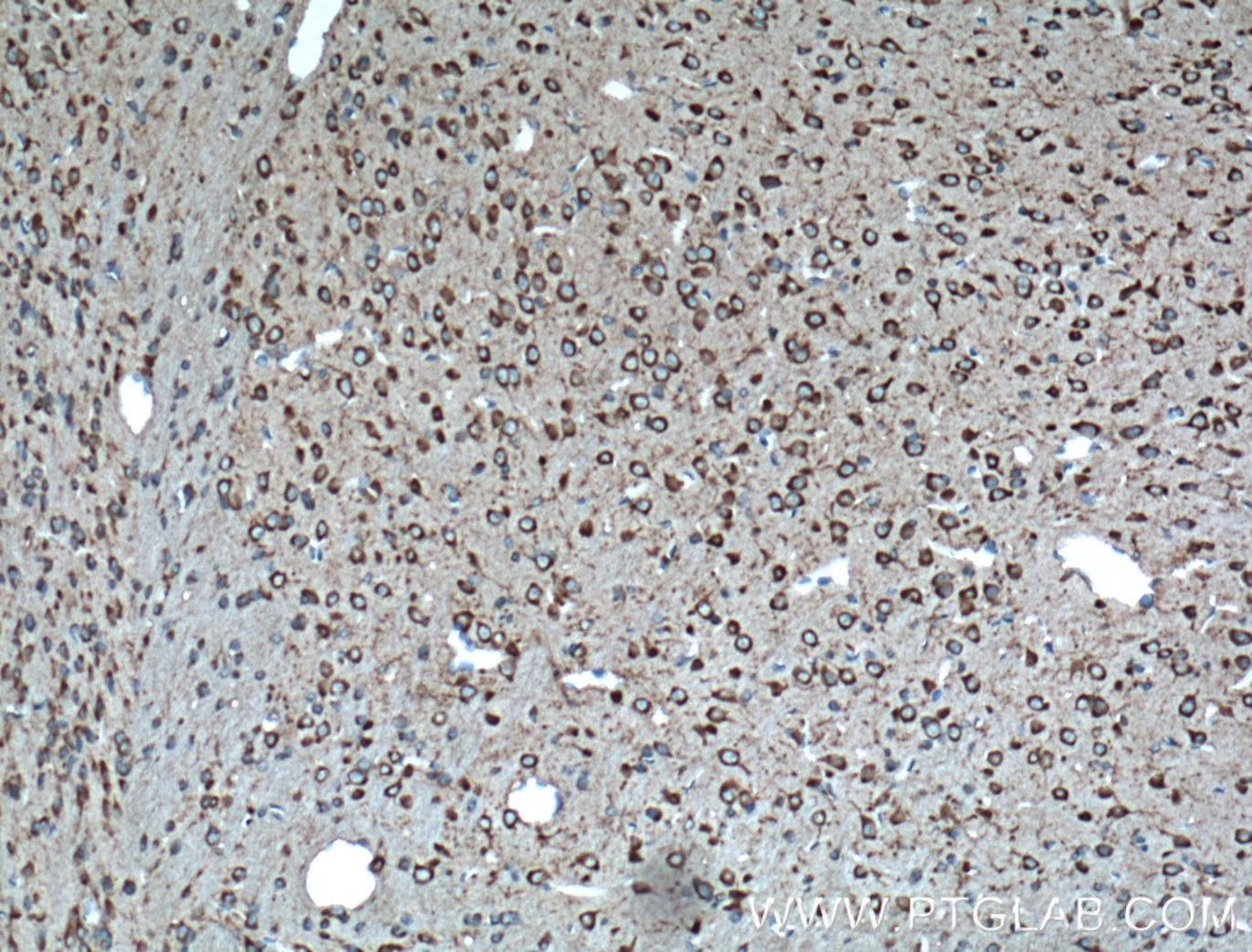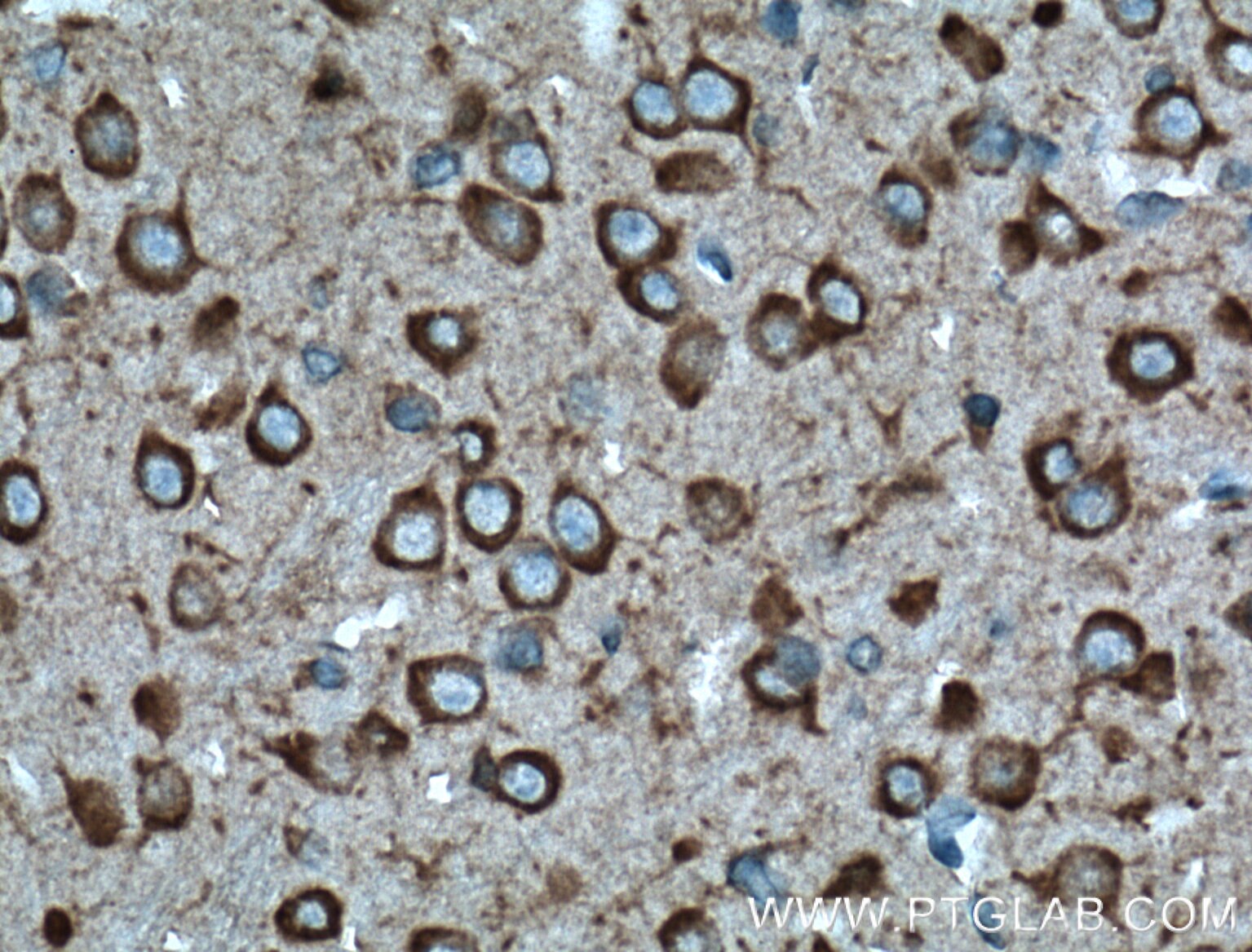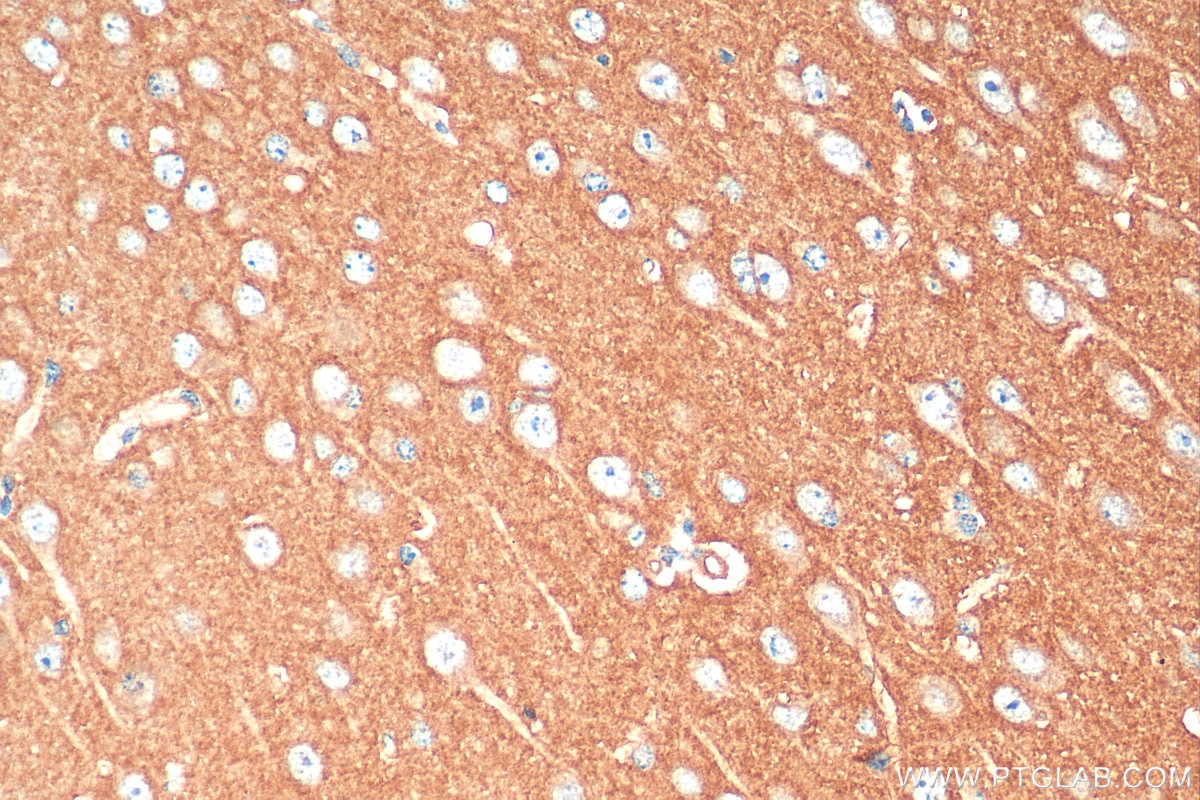- Phare
- Validé par KD/KO
Anticorps Polyclonal de lapin anti-GPR137
GPR137 Polyclonal Antibody for IHC, ELISA
Hôte / Isotype
Lapin / IgG
Réactivité testée
Humain, rat, souris
Applications
WB, IF, IHC, ELISA
Conjugaison
Non conjugué
N° de cat : 11929-1-AP
Synonymes
Galerie de données de validation
Applications testées
| Résultats positifs en IHC | tissu cérébral de souris, tissu de gliome humain il est suggéré de démasquer l'antigène avec un tampon de TE buffer pH 9.0; (*) À défaut, 'le démasquage de l'antigène peut être 'effectué avec un tampon citrate pH 6,0. |
Dilution recommandée
| Application | Dilution |
|---|---|
| Immunohistochimie (IHC) | IHC : 1:50-1:500 |
| It is recommended that this reagent should be titrated in each testing system to obtain optimal results. | |
| Sample-dependent, check data in validation data gallery | |
Applications publiées
| KD/KO | See 3 publications below |
| WB | See 6 publications below |
| IHC | See 1 publications below |
| IF | See 1 publications below |
Informations sur le produit
11929-1-AP cible GPR137 dans les applications de WB, IF, IHC, ELISA et montre une réactivité avec des échantillons Humain, rat, souris
| Réactivité | Humain, rat, souris |
| Réactivité citée | Humain, souris |
| Hôte / Isotype | Lapin / IgG |
| Clonalité | Polyclonal |
| Type | Anticorps |
| Immunogène | GPR137 Protéine recombinante Ag2611 |
| Nom complet | G protein-coupled receptor 137 |
| Masse moléculaire calculée | 396 aa, 44 kDa |
| Numéro d’acquisition GenBank | BC033920 |
| Symbole du gène | GPR137 |
| Identification du gène (NCBI) | 56834 |
| Conjugaison | Non conjugué |
| Forme | Liquide |
| Méthode de purification | Purification par affinité contre l'antigène |
| Tampon de stockage | PBS avec azoture de sodium à 0,02 % et glycérol à 50 % pH 7,3 |
| Conditions de stockage | Stocker à -20°C. Stable pendant un an après l'expédition. L'aliquotage n'est pas nécessaire pour le stockage à -20oC Les 20ul contiennent 0,1% de BSA. |
Informations générales
G protein-coupled receptors (GPRs) are highly related to oncogenesis and cancer metastasis. G protein-coupled receptor 137 (GPR137) was initially reported as a novel orphan GPR about 10 years ago. GPR137 is ubiquitously expressed in the central nervous system (CNS), mainly in the hippocampus (PMID: 22025619). GPR137 is involved in the progression of human glioma, suggesting GPR137 as a potential oncogene of glioma cells (PMID: 24870220). Recent study shows that GPR137 plays an important role in colon cancer cell proliferation (PMID: 25301753).
Protocole
| Product Specific Protocols | |
|---|---|
| IHC protocol for GPR137 antibody 11929-1-AP | Download protocol |
| Standard Protocols | |
|---|---|
| Click here to view our Standard Protocols |
Publications
| Species | Application | Title |
|---|---|---|
Biotechnol Appl Biochem Knockdown of GPR137 by RNAi inhibits pancreatic cancer cell growth and induces apoptosis. | ||
Biotechnol Appl Biochem G-protein-coupled receptor 137 accelerates proliferation of urinary bladder cancer cells in vitro.
| ||
Cell Biol Int Down-Regulation of G Protein-Coupled Receptor 137 by RNA Interference Inhibits Cell Growth of Two Hepatoma Cell Lines. | ||
Neurol Sci Inhibition of GPR137 expression reduces the proliferation and colony formation of malignant glioma cells. | ||
J Bone Oncol Small interfering RNA-mediated silencing of G-protein-coupled receptor 137 inhibits growth of osteosarcoma cells. | ||
Mol Med Rep RNA interference-mediated silencing of G protein-coupled receptor 137 inhibits human gastric cancer cell growth.
|





